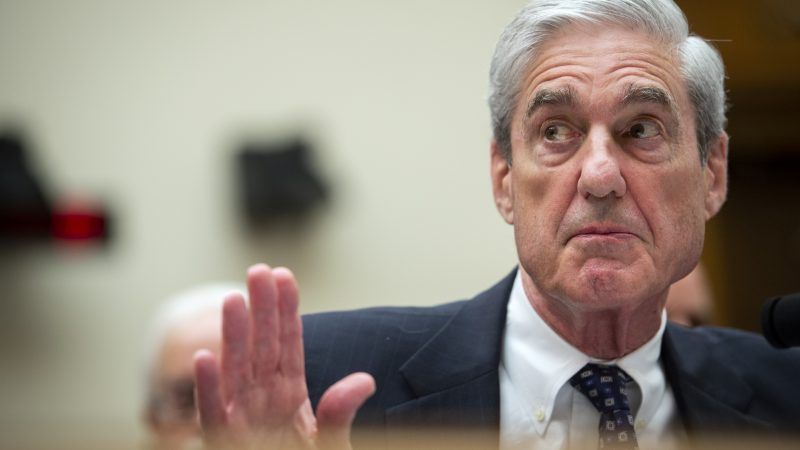Robert Mueller's Testimony Convinced Everyone of Exactly What They Already Believed
The former special counsel's abridged answers to lawmakers' questions changed few minds.

Few surprises emerged from former Special Counsel Robert Mueller's testimony before the House Judiciary and Intelligence committees today, with the combined five hours of hearings proving to be one big exercise in confirmation bias.
Democrats used their questioning of Mueller to highlight his investigation's discovery of wrongdoing by associates of President Donald Trump. Republicans did their best to emphasize inconsistencies in Mueller's statements and cast doubt on the competency and integrity of the former FBI director and his investigative team.
Mueller largely gave short, perfunctory "yes" or "no" answers to the questions posed to him. And that's when he chose to answer questions at all. Mueller repeatedly told the representatives quizzing him that their queries were outside his purview, touched on ongoing investigations, or had already been answered in his report.
Judging by the reaction on Twitter, it was a very disappointing performance:
Rarely has made-for-TV drama been such bad TV.
— Rich Lowry (@RichLowry) July 24, 2019
https://twitter.com/davidgura/status/1154068779766341632
The one possible bombshell today came from an exchange in the Judiciary Committee hearing between Mueller and Rep. Ted Lieu (D–Calif.). Mueller had answered yes when asked by Lieu if he declined to indict Trump because of an existing Department of Justice Office of Legal Counsel (OLC) opinion stating that a sitting president couldn't be charged with a crime.
This answer briefly confirmed the notion that Mueller had found evidence of illegal activity committed by the president and was only prevented from indicting him by Justice Department policy.
However, Mueller walked back this answer in his afternoon testimony before the House Intelligence Committee, saying that that OLC opinion prevented him from making any determination, period, of Trump's culpability in obstructing justice.
"What I wanted to clarify is that we did not make any determination in regard to culpability," said Mueller in response to a question from Rep. John Ratcliffe (R–Texas). "We did not start that process."
Mueller just walked this back during his opening statement in the House Intelligence Committee https://t.co/G2HRlCihwm
— Yashar Ali ???? (@yashar) July 24, 2019
These flat or confused responses from Mueller left the elected officials questioning him to do little more than grandstand.
This generally worked to Republicans' advantage, as their accusations of bias and prosecutorial overreach were met with mild pushback from the Mueller. Democrats' attempts to get Mueller to state for the cameras all the bad things his report uncovered went over poorly.
Schiff trying to get Mueller confirmation of elements in report. Trying to prompt a "yes"
Here are the special counsel's answers.
Mueller: "Don't know that for sure."
Mueller: "Um, I believe there were indications in the report, yes."
Mueller: "I am not familiar with that."
— Josh Kraushaar (@JoshKraushaar) July 24, 2019
In this way, Mueller's testimony landed in the same way so many scandals and revelations about the Trump administration have, with Democrats just as incensed as ever, and Republicans spinning a narrative of a conspiracy against the president.
Rent Free is a weekly newsletter from Christian Britschgi on urbanism and the fight for less regulation, more housing, more property rights, and more freedom in America's cities.


Show Comments (279)